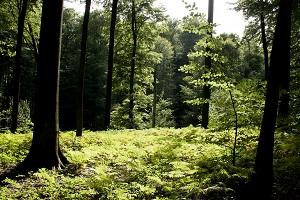
Today, more than 2 billion ha of lands globally are deforested and degraded causing competition for scarce land and natural resources, hunger and threats to livelihoods. Major causes, particularly, in Eastern and South-Eastern Europe are linked to pests, diseases, droughts, forest fires, wind damage but also over-exploitation.
Restoring forest landscapes is a nature-based solution to the climate emergency and its widespread impact holds the potential to help eliminate poverty, provide food and livelihoods, restore biodiversity and ecosystems. With a return of 9 dollars for every dollar spent, according to the International Union for Conservation of Nature (IUCN), forest landscape restoration is also one of the most effective and investment smart answers to the climate crisis.
Countries of Eastern and South-Eastern Europe (Albania, Bosnia and Herzegovina, Bulgaria, Croatia, Czechia, Moldova, Montenegro, North Macedonia, Poland, Serbia, Slovakia, Slovenia, Turkey, Ukraine) are taking bold action with the commitment to restore more than 4 million ha of land by 2030 under the Global Bonn Challenge. This was announced today at the Ministerial meeting organized by UNECE and FAO as part of the UN’s Decade of Ecosystem Restoration. This will be add to the 2.5 million ha pledged during the 2018 Ministerial Roundtable on Forest Landscape Restoration in the Caucasus and Central Asia and contribute to the regional ECCA30 initiative under the Bonn Challenge. Launched in 2011 by the government of Germany and the International Union for Conservation of Nature (IUCN), the global effort attempts to bring 350 million ha of degraded and deforested land into restoration by 2030.
Ministers from Eastern and South-Eastern European countries emphasized the utmost importance of landscape restoration to face the climate challenge and reverse some of its impacts. Engaging with communities while integrating landscape restoration into national strategies will be essential to building more resilience and aligning national, regional and international forest restoration and planting efforts.
The countries attending the Ministerial meeting also adopted the ECCA30 Ministerial Declaration, which stresses the need for voluntary and measurable forest landscape restoration commitments.
In her opening address, UNECE Executive Secretary Ms Olga Algayerova recalled that scaling up efforts to restore forest landscapes is vital to harness the many important benefits that forests bring to ecosystems, economies and societies at large, as well as to strengthen climate action.
Mr Vladimir Rakhmanin, FAO Assistant Director-General and Regional Representative for Europe and Central Asia highlighted FAO’s Forest and Landscape Restoration Mechanism and the help FAO extends to its member countries in shaping approaches towards a more harmonious integration of forestry and agriculture while enhancing food security and forest maintenance.
Note to editors:
The Ministerial Roundtable was organized by the UNECE/FAO Forestry and Timber Section, in cooperation with IUCN and with the kind support of the German Ministry of Environment, Nature Conservation and Nuclear Safety.
Related links:
ECCA30 Declaration: https://unece.org/sites/default/files/2021-10/Ministerial%20Meeting%20Declaration.pdf
Bonn Challenge: www.bonnchallenge.org
Global Partnership on FLR: www.forestlandscaperestoration.org